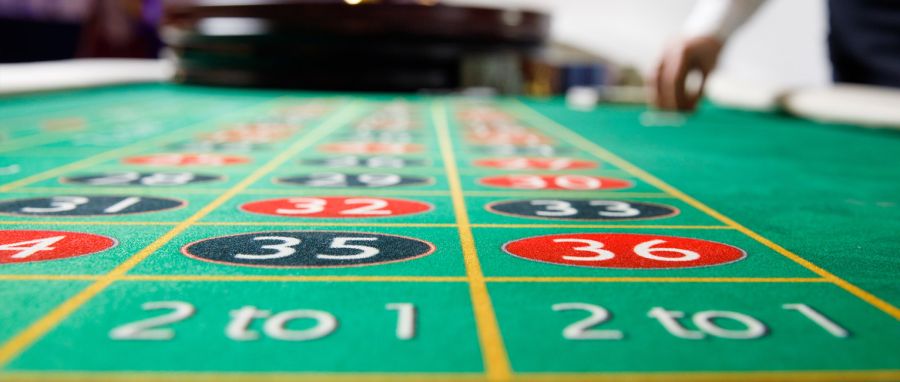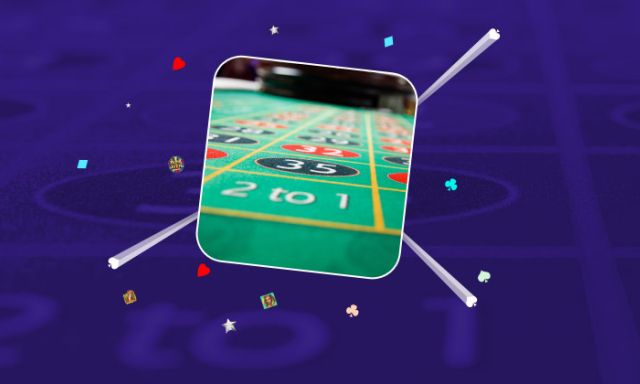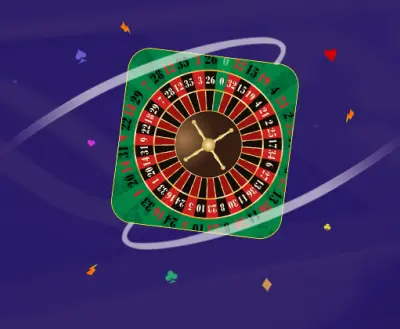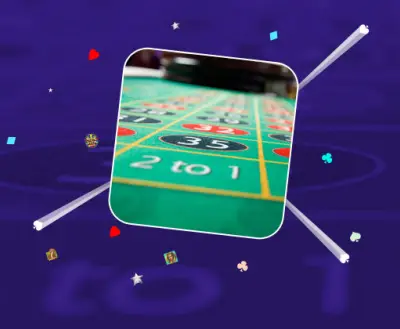Roulette Odds: What are the odds of winning at roulette?
Key Takeaways:
- Roulette is a game of chance with odds and probabilities that vary based on the type of roulette variant and bet placed.
- American roulette has a higher house edge (5.25%) than European (2.70%) and French roulette, making it less favourable for players.
- Probability is the likelihood of an event happening, while odds can refer to true odds, payout odds, and implied odds.
- European and French roulette odds are more favourable than American roulette odds due to the absence of the 00 pocket.
- Outside bets offer higher probabilities but lower odds, while inside bets offer higher odds but lower probabilities.
- Understanding roulette odds and probabilities can help players make informed decisions and potentially improve their chances of winning.
- It's essential to set limits and choose the right table when playing online roulette to manage risks and maximise potential winnings.
- Roulette relies entirely on luck, and no betting strategy can guarantee a win.
Roulette, a classic casino game that has captivated the hearts of many, offers a thrilling experience as players attempt to predict the outcome of the spinning wheel. This article delves into the intricacies of roulette odds and probabilities, exploring the varying odds associated with different roulette variants and bet types. By understanding these aspects, players can make informed decisions and potentially improve their chances of winning in this exciting game of chance.

Understanding Roulette Odds
The odds of winning at roulette depend on several factors, with the primary factor being the variant players choose. Online casinos usually offer American and European versions of roulette wheels, each with different winning odds. American roulette odds differ, with a house edge of around 5.25%, while European roulette has a house edge of approximately 2.70%.
Another factor that influences winning odds in roulette is the type of bet placed. Even money bets, such as high or low, black or red, and odd or even, offer the best winning chances at nearly 49%. The least likely bet to win is a straight-up bet, with players having around a 2.70% chance of correctly predicting a single number on the wheel.
Difference Between Probability and Odds
Though linked, there are essential differences between probability and odds that players should be aware of. Interestingly, there are several interpretations of odds, which we will cover below!
Probability
Probability is the likelihood of an event happening or the number of times it will occur during a set number of attempts. It can be calculated mathematically by comparing the chosen event to other possibilities. For example, if someone tries to guess a number from 1 to 10, they are expected to predict the number correctly once every ten tries. This translates to a probability of 10%.
Odds
Three types of odds are related to the probability of an event occurring or not. The 'true odds' represent the chance of an outcome happening. For example, on a European roulette wheel, there are 37 slots, meaning that the 'true odds' of predicting the correct number are 36 to 1.
Next, 'payout odds' refer to the potential winnings associated with each outcome on the roulette wheel. Betting on red or black, for example, offers odds of 1:1, also known as 'even money'. The 'payout odds' usually differ slightly from the 'true odds' because they incorporate the house edge.
Lastly, 'implied odds' convert probability into odds format. For instance, if something has a 20% chance of occurring, the implied odds are 1/4. The 1 represents the implied chance of success, while the 4 relates to the chance of the desired outcome not happening.

Roulette types and their probabilities
Different roulette variations have varying probabilities, both for the overall chance of winning and the probability of different bets being successful. Let's explore three of the most popular roulette variations and explain their probabilities!
European Roulette Odds
A European roulette wheel has 37 slots in which the ball can land, one being a zero and the others represented by the numbers 1 to 36. The house edge for this version is approximately 2.70%. Some of the most popular odds, known as 'even money' bets, have a probability of around 48.65% and odds of 1:1. European roulette odds are among the best.
American Roulette Odds
American roulette has two zero slots, represented by a 0 and a 00. This seemingly minor change increases the house edge to around 5.25%, making it one of the least favourable roulette variants. However, it's not the worst, as triple zero and mini roulette have higher house edges.
For example, the red or black bet has a 48.65% chance of hitting on a European layout, which decreases to 47.40% on American tables, with the odds remaining the same at 1:1. Considering this decrease in probability, it's no surprise many players prefer European roulette odds.
French Roulette Odds
French roulette shares the same board layout as European roulette and offers the same roulette odds UK players can expect. Although this variation has extra rules, they don't impact the roulette probability. The odds for various bets, like the straight-up bet on a single number, are identical, with a probability of 2.70% and potential winnings at 36 to 1. In short, French roulette odds payout is the same as on European tables.
Exploring Bets and Their Odds in Roulett
Having covered the different wheel types, let's examine the range of betting options and their roulette betting odds. Some bets are more popular than others, but all come with the same house advantage. The probability and odds associated with each bet differ, and these probabilities are based on the European roulette variation.
Outside Bets and Odds
Outside bets cover a large portion of numbers, offering higher roulette probability than inside bets, but with lower odds. Some popular outside betting options include:
Black or Red Bet and Odds
This bet is among those with the best roulette odds. Players bet on whether the chosen number will be red or black. If this bet wins, the payout is 1:1, with the probability being around 48.65% on a European roulette wheel. Although some may think this bet has a 50:50 chance, landing in the 0 pocket results in a loss.
High/Low Bet and Odds
Betting on whether the winning number will be high or low offers the same odds and probability as the red or black bet. Low numbers range from 1 to 18, while high numbers are 19 to 36. With 18 numbers covered, potential winnings are 1:1, and the probability is 48.65%.
Column Bet and Odds
Column bets cover 12 numbers and give players approximately a 32.43% chance of success. If the ball lands on any of these 12 outcomes, the bet pays 2:1. Column bets are usually found on the roulette board's far right and are often labelled '2 to 1'.
Dozen Bet and Odds
Dozen bets cover 12 numbers on the board and are displayed above the 'even money' bets as '1st 12', '2nd 12', and '3rd 12'. If the ball lands on one of these 12 numbers, the payout is 2:1, with a probability of 32.43%. This bet differs from column bets since the outcomes are numerical.
Inside Bets and Odds
Inside bets cover fewer numbers or a single number, resulting in higher odds but lower probability. Here are some inside bets and their online roulette odds:
Straight Bet and Odds
Straight bets involve betting on a single number, offering the highest odds at 37:1. The probability of winning a straight bet is 2.70%.
Split Bet and Odds
A split bet covers two adjacent numbers on the board. Players can place chips on the line where the two numbers meet, with a probability of 5.40% and a payout of 17 to 1.
Street Bet and Odds
Street bets cover three consecutive numbers (e.g., 1, 2, and 3) and can be placed by laying chips on the outer grid, at the top or bottom of the row. The probability is about 8.10%, with odds of 11 to 1.
Square or Corner Bet and Odds
Placing a square or corner bet covers four numbers where their corners meet on the roulette betting area. If the ball lands on any of the four numbers, players receive a payout at the rate of 8 to 1. The probability of this outcome is 10.80% on European roulette tables.
Six Line Bet and Odds
Six line bets, also known as 'double street' bets, cover six consecutive numbers. This option has a probability of 16.20%, double that of street bets, with odds of 5 to 1.
Basket Bet and Odds
The basket bet, or 5 number bet, allows players to bet on five different outcomes simultaneously. This bet is exclusive to American roulette variations, as it includes 00, as well as the 0, 1, 2, and 3 pockets. Basket bets have a probability of 13.20% and payout odds of 6 to 1.
Roulette Winning Tips
One tip for roulette enthusiasts is to learn the game's ins and outs before placing any chips. This reinforces that roulette relies solely on luck and that strategies like betting on hot numbers don't influence the outcome. Understanding roulette odds payout can help players select a bet that matches their preferences, considering the odds and probability in roulette.
Choosing a table is another crucial aspect of playing online roulette. Different tables offer various selections, and in some cases, the house edge is significantly affected. For instance, European roulette has a lower house edge than its American counterpart due to the absence of the 00 pocket.
Players should set limits before engaging in any online casino game. At PartyCasino, we provide numerous features to ensure players don't exceed their limits, including setting a maximum cap on daily, weekly, or monthly deposits. We also offer a 'deposit curfew' feature, disabling deposits during specific periods.
Conclusion: The Best Bets for Your Balance
Placing chips on 'even money' bets might be the best option for punters. These bets have the highest probability of success and can help players avoid tilting during losing streaks. Of course, 'even money' betting strategies don't guarantee a win, nor does any other roulette system.








